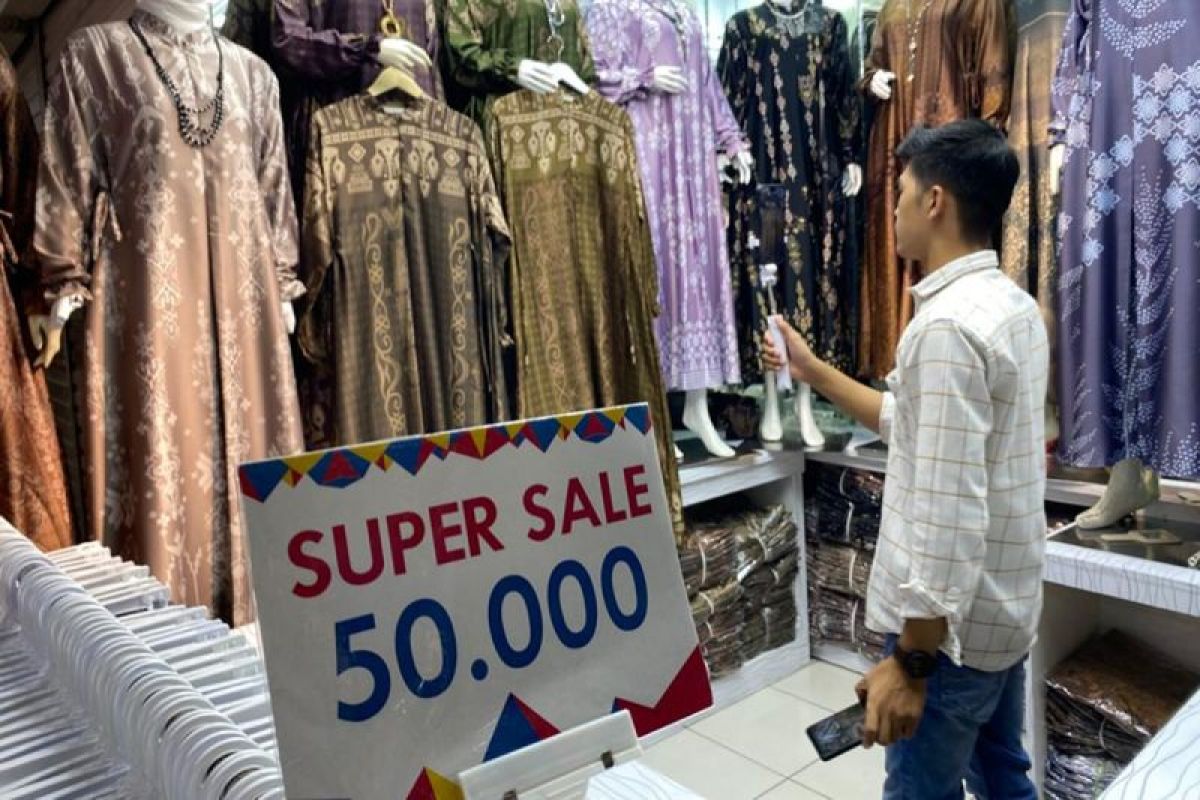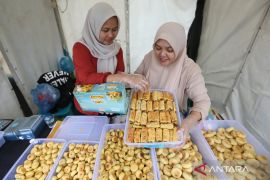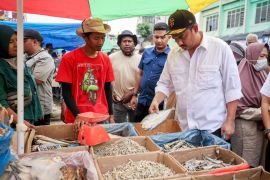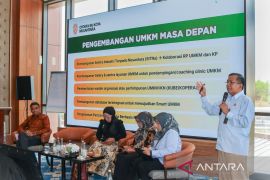The government has issued the Minister of Trade's Regulation (Permendag) No. 31/2023, which regulates e-commerce and social commerce, in what it says as an effort to build a positive trade ecosystem amid the digital disruption. The regulation led to the closure of TikTok Shop Indonesia on October 4, 2023.
One of the provisions of the regulation concerns the social commerce business model. It only allows social commerce platforms to promote products just like television advertisements do, but prohibits them from conducting sales transactions.
Still, the erosion of conventional markets such as Tanah Abang by digital marketplaces holds a lesson for other sectors.
It is inevitable that digital technology disruption has created a challenge for all economic sectors in Indonesia.
Taking note of this, particularly Tanah Abang Market's case, Vice President Ma'ruf Amin has said that micro, small, and medium enterprises (MSMEs) need to adapt to technological disruptions.
He has noted that digital technology and innovation are driving the current disruption in the global economy.
Economic players who do not adjust to the ongoing digital advancement will be affected, he cautioned.
Almost all traders at conventional markets are MSMEs. Therefore, business actors, especially MSMEs, must immediately build their awareness to prepare and adapt to the dynamics of the times and the challenges of disruption, he advised.
The Ministry of Trade has also expressed its readiness to arrange training for micro, small, and medium enterprises (MSMEs) so that they can sell their products using digital platforms.
The ministry will train market traders as well as MSME entrepreneurs. "We train them, and we will facilitate the training for them by digital platform (parties)," Minister of Trade, Zulkifli Hasan, said.
He explained that MSME players will receive free training on how to sell products on digital platforms as well as techniques for packaging and displaying products to attract more customer interest.
Hasan expressed his hope that e-commerce platforms' decision to adjust business operations after the issuance of the Minister of Trade's Regulation Number 31 of 2023 will be used as an opportunity by MSMEs to start selling online.
This is an opportunity for local MSME businesses and domestic industry, he said, adding that shops also make good use of digital platforms.
The development of digital platforms as a medium for commerce, according to the minister, is something that cannot be avoided, so conventional traders are expected to take advantage of it.
"We invite shop owners who sell offline to also sell online because digital platforms are impossible to avoid; it is a trade that is like that today and in the future," he said.
The Minister of Trade's Regulation Number 31 of 2023 (Permendag 31/2023) concerning business licensing, advertising, guidance, and supervision of business actors in trading through electronic systems regulates a number of aspects, such as the separation between social media and social commerce.
The regulation also sets a minimum price of US$100 for finished goods from abroad that can be sold directly by traders to Indonesia via cross-border e-commerce platforms.
It also provides a positive list or a list of goods from overseas that are allowed to directly enter Indonesia via e-commerce platforms.
The regulation lays down special requirements for foreign traders operating in domestic markets: they need to submit proof of business legality from the country of origin, comply with standards (particularly Indonesian National Standards/SNI) and halal requirements, include Indonesian language labels on products originating abroad, and state the origin of delivery of goods.
Furthermore, it prohibits marketplaces and social commerce from acting as producers, as well as controlling of data by electronic trading system operators (PPMSE) and affiliates.
PPMSE's obligation is to ensure that there is no misuse of user data by PPMSE or affiliated companies.
The regulation is the result of a revision to Minister of Trade's Regulation Number 50 of 2023, which aims to protect MSME players who are unable to compete with social commerce platforms because of predatory pricing.
Will it hurt MSMEs?
Regulation No. 31 of 2023, which led to the closure of TikTok Shop, will not hurt MSMEs, according to Cooperatives and Small and Medium Enterprises (SMEs) Minister Teten Masduki.
The legislation forbids the operation of social commerce platforms that integrate social media and e-commerce features and services.
According to him, MSMEs will not suffer because they have access to platforms other than TikTok.
Minister Masduki clarified that the goal of the government's decision regarding TikTok Shop was not to impede MSME enterprises. He said that TikTok Shop closed because it did not obtain permission to function as an online marketplace.
The goal of the government is not to destroy TikTok companies, he said. To operate in Indonesia, he underlined, all international business actors must follow the regulations set forth by the government.
He further said that MSMEs who were conducting business on TikTok Shop could easily shift to other online shopping platforms.
The minister also advised entrepreneurs to promote their products using conventional ways in addition to utilizing digital platforms.
There are other channels for conducting trade activities. Buyers will not face difficulties in accessing those channels, he assured.
Masduki further explained that in order to continue its business in Indonesia, TikTok Shop will need to open a representative office in Indonesia, apply for a permit to operate as an e-commerce platform, and conform to Regulation No. 31 of 2023.
TikTok Shop can continue its business in Indonesia if it establishes a representative office, he said.
Related news: Govt must level playing field for conventional, digital MSMEs: BRIN
Related news: Indonesia's digital economy has grown rapidly: Finance Ministry
Editor: Tia Mutiasari
Copyright © ANTARA 2023












